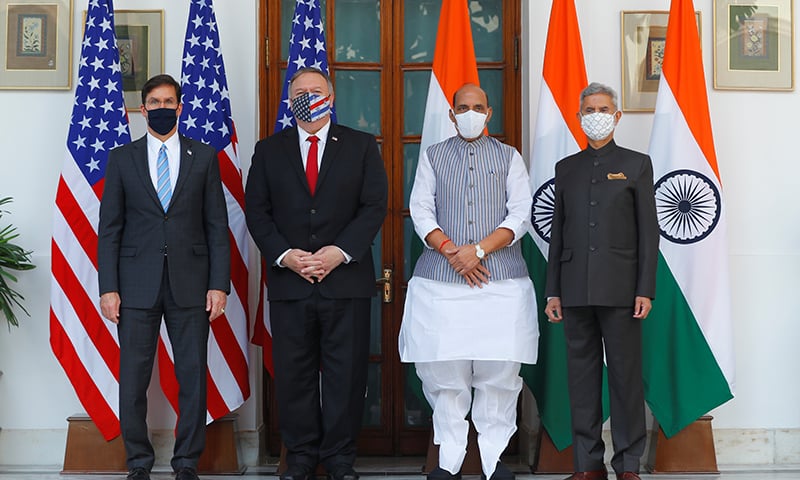Monitoring Desk: The working of the Shanghai Cooperation Organization (SCO) is hampering as three rivals sitting together and India is blocking everything that can benefit its enemies —China and Pakistan, reports Eurasia News.
India, a friend of Moscow since the middle of the last century and a traditional buyer of Soviet-Russian weapons, is moving towards a rapid military rapprochement with the United States.
Today, Delhi hosted a two-plus-two meeting of the heads of the military and diplomatic departments of the two countries. As a result, a new agreement was signed with Washington on the exchange of data, and in fact, on the provision of information to India from American military satellites about the geographic relief, as well as the situation on the sea surface and in the atmosphere.
This could significantly improve the accuracy of Indian missiles and the efficiency of drone use. The measure, no doubt, has the character of deterring, first of all, China – and also Pakistan, Delhi’s sworn enemy.
A more general bilateral agreement on the exchange of military information had already been signed earlier. But the current one concretizes the previous agreements – in particular, contains guarantees against the transfer of data to third parties, i.e. including Russia.
Russian newspaper Kasparov indicates that India is already participating in a quadripartite military-political structure together with the United States, Japan and Australia. Ministerial meetings are held in this format.
In November, the countries of the “four” will conduct a joint and very impressive naval exercise. Chinese Foreign Minister Wang Yi recently called this an attempt to create an Asian version of NATO.

Kasparov reported that the Indian delegation demonstratively left the site of the working consultations in protest against what was said to be Pakistani provocations in September SCO virtual meeting to send a message to United States that India is playing well to include bitterness in smooth working of SCO— a very important Platform for last two decades for China and Russia.





